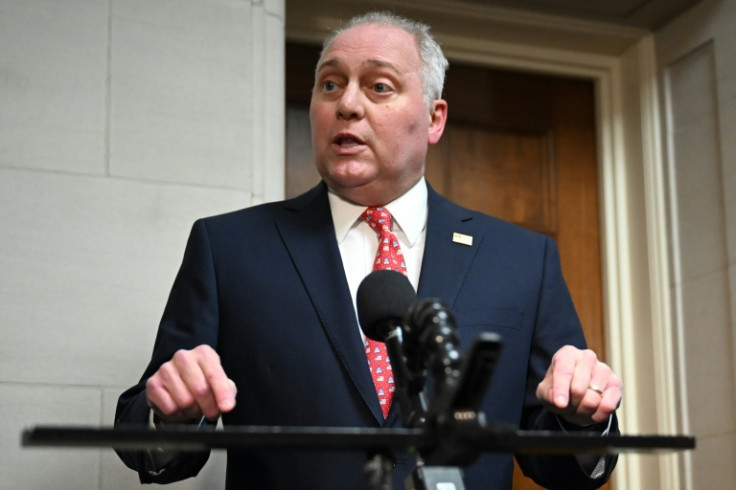
The political uncertainty caused by the abrupt ouster of Kevin McCarthy (R-CA) as Speaker of the House deepened on Thursday after Steve Scalise (R-LA) abandoned his campaign to succeed him.
Scalise, the House Majority Whip, was facing long odds after narrowly beating his main opponent in the race, Jim Jordan (R-OH), by a 113-99 vote. Considering that the republicans hold a slim majority in the House and that democrats hadn't shown willingness to support Scalise, any candidate would have had to garner the support of most republicans to have a real shot. The opposition of five republican representatives could be enough to sink any bid.
"If you look at over the last few weeks, if you look at where our conferences there's still work to be done. Our conference still has to come together and is not there. There are still some people that have their own agendas. And I was very clear we have to have everybody put their agendas on the side and focus on what this country needs. This country is counting on us to come back together," he said. Scalise will remain in his position as House majority leader and has no plan to endorse another candidate for speaker, he said.
GOP lawmakers planned to gather again to talk about a path forward, potentially moving to nominate Jim Jordan or someone else for the role. The new nominee requires a minimum vote of 217 votes in the House to be elected Speaker of the House and, according to Axios, he doesn't have a path to that figure either.
Scalise also received criticism from other political sectors. Sindy Benavides, executive director of the Latino Victory Fund, an organization dedicated to promoting the values of the Latino community at various levels of government, told Latintimes.com that Scalise has a "record of supporting regressive policies that divide Americans.
Specifically on Hispanics, she said he has sponsored legislation such as the English-only bill and against immigration reform. "He voted against the DREAM Act, which seeks a path to citizenship for children brought to the United States by their parents as minors," she said. "As Majority Whip, Scalise's job would be to unite, not further divide, an already polarized government," Benavides added.
The lack of progress in this area elevates again the risk of a government shutdown, something that would happen on November 17 following a last-minute deal almost two weeks ago. If this ends up being the case, some federal agencies will have no budget and will be seriously affected.
One of them is the one that regulates the immigration process in each of its stages and through different branches according to the function they perform until it's completion. This is one of the aspects in which governmental interference can affect the Latino community and on which the normal development of the lives of thousands of its members depends.
The complex system of government agencies and entities that regulate the entire immigration process will continue to function, but delays and backlogs will occur in many cases.
© 2025 Latin Times. All rights reserved. Do not reproduce without permission.




